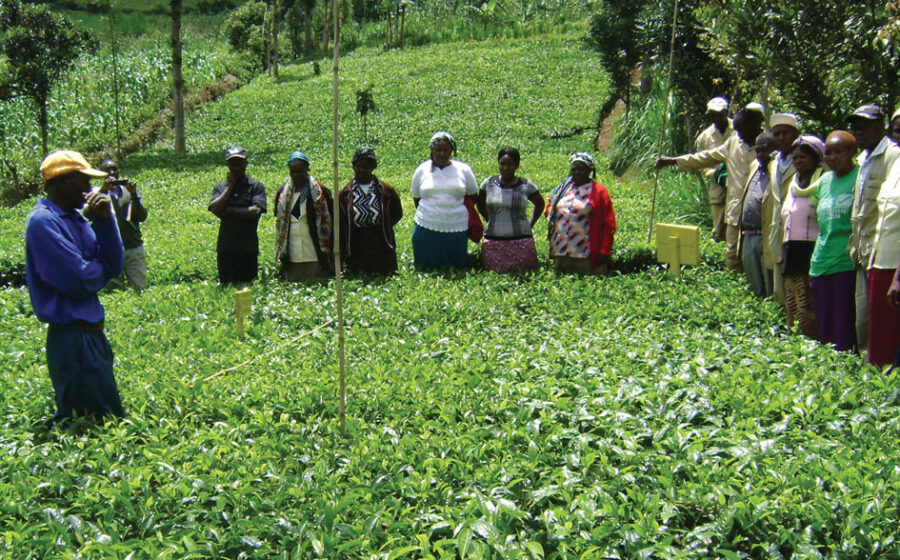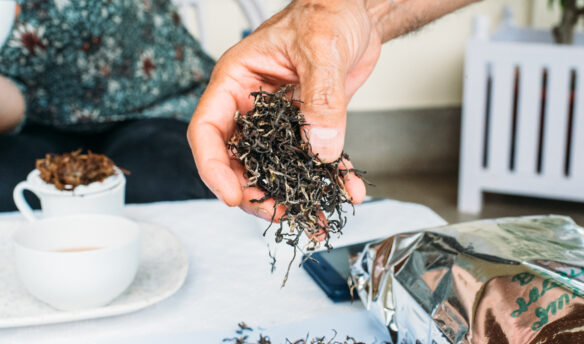[S]prawling estates terracing up and down jungled mountainsides may be an idealized vision of tea production, but estates produce a minority of the worlds’ tea. Smallholders grow and harvest as much as seventy percent of the global tea crop, with eight million farmers estimated to own smallholdings across Asia and Africa. According to NGOs, business groups, and national aid organizations, these farmers often follow outmoded practices that limit their harvests and they have few resources to do anything about it. It’s a common story in commodity agriculture.
Last month, the Ethical Tea Partnership, which is headquartered in London and operates across the globe, and the Sustainable Trade Initiative, which goes by its Dutch initials, IDH, announced a set of programs aiming to improve the livelihood of smallholders and laborers and the sustainability of their farms.
The biggest of them will, if pulled off, and it has some big backers, directly involve 200,000 farmers along a massive arc from Malawi to Vietnam. The project is built on a program run by the Kenyan Tea Development Agency, that country’s massive, 560,000-farmer cooperative. The Kenyan program established what it calls Farmer Field Schools that train groups of thirty farmers for a year on topics like soil management, conservation, composting, harvest management, and other agronomy subjects. All of this education is done following discussions between the farmers and trainers to identify their particular problems and needs and then building the curriculum from there.
According to reports released as part of ETP and IDH’s Team Up 2014 conference in London, the Kenyan cooperative says that the 48,000 farmers who have completed the schools grow thirty-six percent more tea than those who don’t. It’s based on that success that the program is expanding to surrounding African countries as well as India and Vietnam.
A program that can lead to a better livelihood for a family that owns their own farm has a pretty powerful incentive structure. Another program announced by ETP and IDH wants to take on the much sticker issue of increasing laborers’ wages.
In a 2011 analysis of practices in Malawi, India, and Indonesia, ETP and Oxfam pinpointed a major problem: certification organizations often demand estates pay the national minimum wage, but that minimum wage can still be a pittance. In Malawi, according to the analysis, tea workers’ wages were average for the country, right at $1 a day. The new program, lead by Oxfam, ETP, IDH, and Germany’s aide organization, GIZ, will try to improve this. Increasing wages is famously tricky, especially in countries where workers have little representation in government and government policy favors a low jobless rate over higher wages.
It’s a big pull, but in tea country, where some of the poorest people in the world live, even a dollar-a-day-raise would represent a massive improvement.
—Cory Eldridge is Fresh Cup’s editor.
















